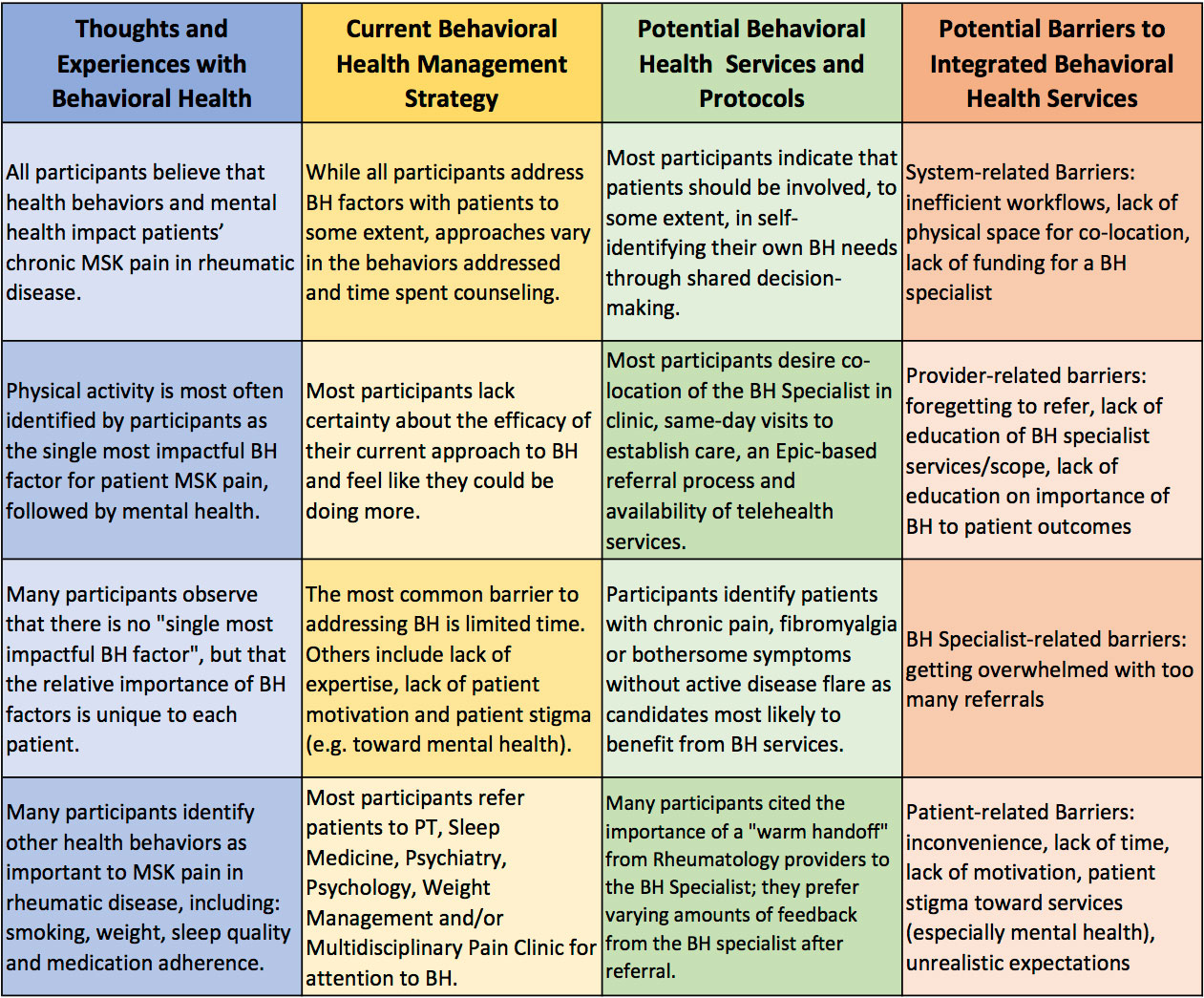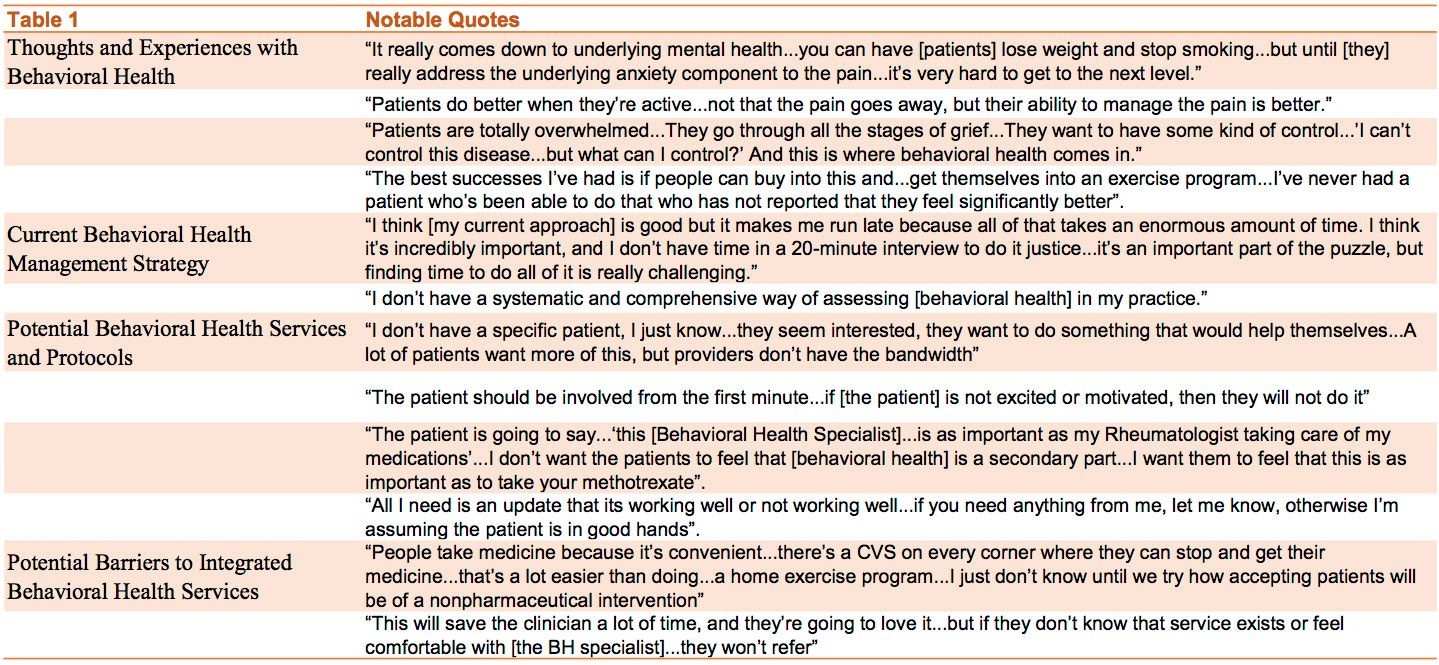Session Information
Session Type: Poster Session B
Session Time: 9:00AM-10:30AM
Background/Purpose: Chronic musculoskeletal (MSK) pain is a common, burdensome symptom of many rheumatic diseases (RD). Certain health behaviors (i.e. smoking cessation and physical activity) are associated with improvement in MSK pain among patients with RD, while psychological comorbidities (e.g. depressive symptoms) may worsen pain. Integration of behavioral health (BH) services directly into Rheumatology clinics may promote desirable health behaviors and treatment of psychological comorbidities, ultimately improving patient outcomes. Maximal efficacy of such BH services depends, in part, on stakeholder (including providers) input during program development. The purpose of this study is to characterize Rheumatology provider attitudes and preferences toward integrated BH services in the management of chronic MSK pain in RD.
Methods: UT Southwestern (UTSW) Rheumatology providers were invited to participate in semi-structured interviews that solicited perspectives on 1) the impact of health behaviors and psychological comorbidities on chronic MSK pain and RD outcomes, 2) logistic preferences for integrating BH services within the clinics and 3) perceived barriers to integration of BH services. Participants also completed a survey for demographic data and quantitative ratings of the desirability of specific BH services. Interviews were summarized and analyzed using Rapid Qualitative Analysis (RQA) and matrix analysis techniques to identify thematic domains.
Results: Interviews were conducted via TEAMS video with UTSW Rheumatology providers (n=12, 11 MD’s and 1 APRN, 8 women, mean years in practice 17.1 with SD of 9.4). RQA yielded four thematic domains (see Figure 1). All participants believed health behaviors (particularly physical activity) and mental health impact patients’ pain experience. Participants reported limited time and expertise to address BH independently and desired co-location in clinic and same-day availability of integrated BH services. Participants identified factors associated with systems, providers, patients and/or the BH Specialist as potential barriers to integrating BH services. See Table 1 for illustrative quotes.
Conclusion: The Rheumatology providers interviewed in this study recognize the impact of health behaviors on chronic MSK pain in patients with RD. They envision integrated BH services that maximize efficiency and convenience for both patients and providers. Data from this study will inform the development of protocols for integration of a BH Specialist in UTSW Rheumatology Clinics. Results and subsequent protocol development may generalize to other specialties where patients experience chronic pain.
To cite this abstract in AMA style:
Patterson D, Link-Malcolm J, Ghebranious M, Makris U. Integrated Behavioral Health Services for Patients with Chronic Musculoskeletal Pain: Rheumatology Provider Perspectives [abstract]. Arthritis Rheumatol. 2022; 74 (suppl 9). https://acrabstracts.org/abstract/integrated-behavioral-health-services-for-patients-with-chronic-musculoskeletal-pain-rheumatology-provider-perspectives/. Accessed .« Back to ACR Convergence 2022
ACR Meeting Abstracts - https://acrabstracts.org/abstract/integrated-behavioral-health-services-for-patients-with-chronic-musculoskeletal-pain-rheumatology-provider-perspectives/


